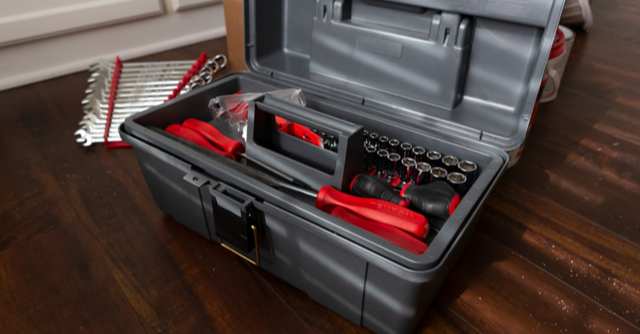
A few years from now, when the coronavirus pandemic is memory, people will point to individual milestones and accomplishments that are badges of honor for surviving the calamity of 2020. Some will point to their new “best friend.” Local pet shelters have reported that adoptions in the Spring were at an all-time high. Others may provide their answer to how they spent their months in quarantine in a different language. Online linguistic learning company Duolingo reported a whopping 148% increase in usership this year. However, according to recent data, the vast majority of Americans will point to a home improvement project as their “COVID achievement.”
A recent Bank of America poll on shopping habits of Americans during the pandemic found that 70% have decided to take on a home improvement project with their newly found spare time. Data from the BOA poll is echoed by a survey published by Realtor.com that found that kitchen upgrades and home gym installations were particularly popular as shelter-in-place projects.
But where taking on a DYI project in private suburban home with space between you and your neighbors comes with its own share of complications, there are host of other issues that come into play for apartment dwellers – many of which can leave you in legal jeopardy especially if the project involves wiring. However, if you still feel compelled to flex those DIY muscles, here’s a quick three point checklist for apartment dwellers to go through before making the trip to Home Depot for supplies.
Thinking of taking on electrical work as your COVID project? Think again. While it may be tempting to tackle electrical repairs or installations yourself, it’s crucial to prioritize safety and hire professional residential electricians or commercial electrician services. At PK Electric NYC, we offer 24-hour electrical service, ensuring prompt assistance for any electrical issues. Our team of skilled electricians provides reliable electrical repairing services and thorough electrical inspections services to ensure your home or business is up to code and safe. Don’t compromise on safety—trust the expertise of our professionals for all your electrical needs.
KNOW YOUR PROPRIETARY LEASE
As a co-op owner who either lives in or rents an apartment, you’ve signed a proprietary lease. Each lease is different as to which parts of your apartment you can claim responsibility to. Some leases state the apartment shareholder (owner) are responsible for and can make changes within the walls of their apartment. Other proprietary leases aren’t nearly as generous and state that the shareholder only owns “to the paint.” If the latter is the case, a DYI project involving electrics will definitely be off the table. But with most cases, as a co-op dweller, if you want to make any changes, you’ll have to file and alteration application with your management company for approval by your co-op board. That board has the authority to nix any DYI dreams involving wiring and require that you hire a licensed and insured electrician. And think again before doing any work on-the-sly. Some proprietary leases have language that gives the co-op board the right to evict shareholders who have unapproved work done in their apartment.
RESEARCH LOCAL CODES
If you’re lucky enough to have a rare proprietary lease that allows you to do your own electrical work, or if you own a second home in country, you’ll still be responsible for making sure that all the work you do is up to code. Local code standards are vitally important when it comes to electrical work, because faulty wiring can cause home fires. This is why hiring a licensed and insured electrician to maintain permits and schedule inspections, will not only ensure safety, but potentially save you money in the long run by preventing you from getting slapped with a fine.
LIMIT YOUR LIABILITY
So, you’ve mapped out your project, researched its step-by-step instructions on YouTube, made that trip to Lowe’s for electrical supplies, and opened up the wall where you’re going to work. Maybe you’ve realized that you’re in over your head and decided to call in a professional. Make sure that the electrician you call in is licensed and insured. While some non-licensed tradespeople may be familiar with local codes, there is limited incentive for them to follow the rules to the letter. If an inspection finds that electrical work done to your property wasn’t done to code, a licensed electrician runs the risk of losing their certification. Non-licensed tradespeople have far less at stake Moreover, if inspectors find that work hasn’t been completed to code, you’ll have to pay to have it fixed. Get it right the first time.
In the potentially dangerous field of electrical work, there isn’t a lot of room for mistakes. That’s why electricians go through rigorous classroom training and field experience before their apprenticeships – which go on for three years before they can apply to become a master electrician. When all is said and done, a master electrician trains almost as long as a medical doctor. You wouldn’t perform your own surgery. Why would you take on a complicated electrical project?
As a licensed contractor approved by Con Edison, PK & Altman Electric’s expert staff of electricians are on hand for all manner of jobs – from entertainment rooms that requires house current (110), to more complex jobs like kitchens, central air conditioning and laundry room installations that require a 220 volt outlet. Call today to discuss your options with one of our licensed electricians.







